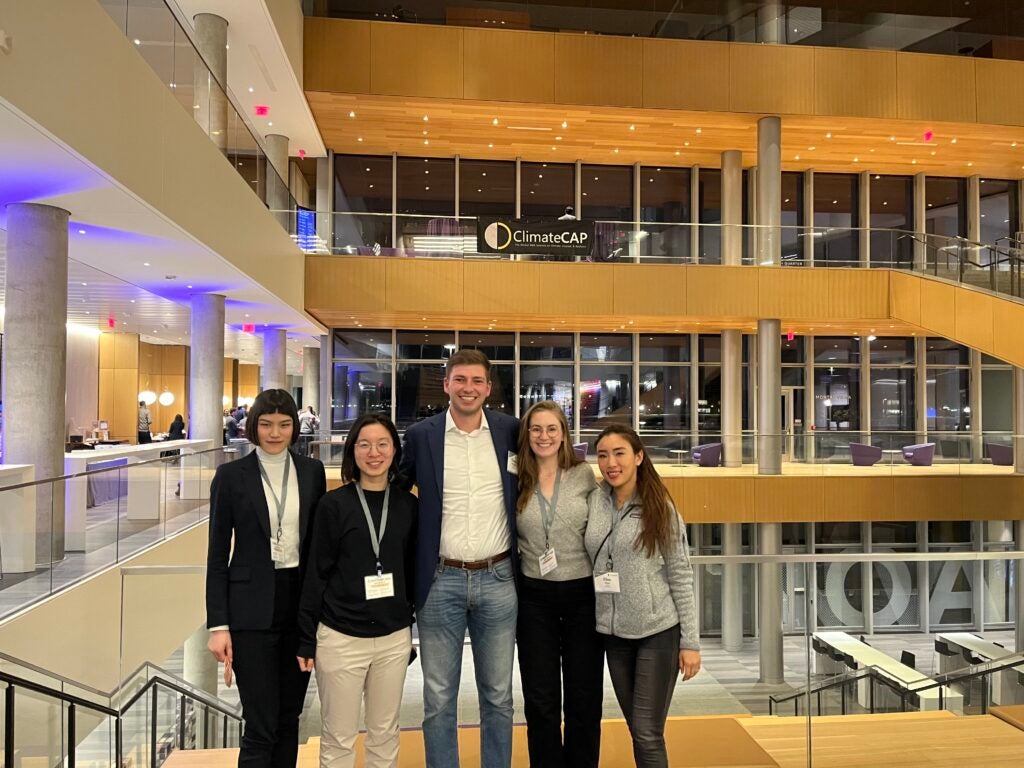
ClimateCAP Shows Penn MBAs How to Shape Climate Careers
Can a new generation of entrepreneurs and financiers make capitalism work for climate action?
Are we prepared to respond to the financial risks and opportunities of climate change? That is the question posed to attendees of the Kellogg School of Management ClimateCAP 2022 Conference earlier this winter. The event hosted a large panel of speakers passionate about the climate space, spanning startups, corporates, government, and academics. And provided MBA students, from Penn and other schools across the country, with the opportunity to think creatively about the most impactful ways they can fight the climate crisis in their post graduate careers.
“From incorporating climate considerations into a company’s strategy, to breakout sessions on climate impact by industry and function, to climate equity and innovative technologies, ClimateCAP addressed nearly every aspect of how the climate disaster is either threatening or creating opportunities in the global economy,” said Thomas Obermeier, a second year Wharton MBA student who attended the conference on a Kleinman Center student grant.
The conference speakers and organizers acknowledged what we know as true: our future leaders need to be prepared to address the climate crisis and the sustainability problems we already face and the growing risks to come. Speakers discussed topics like the need to increase carbon accounting insights, the importance of business culture to push towards more climate focused goals, and how to demand more sustainable practices in the supply chain.

Attendees at the conference saw examples of how you can pursue strong business ideas that are both profitable and help to create a more stable climate and less polluted world.
“Given the scope of the challenge we collectively are up against in the face of a rapidly warming climate, capitalism is the biggest, most powerful weapon in the fight,” said first year Wharton MBA student and Kleinman Center student grant recipient Asher Goldman.
Even though, arguably, it is an excess of capitalism that helped fuel the climate crisis, the conference contended that capitalism can also be part of the solution.
“The same tools of capitalism that in the 19th century set us on the course of carbonization today can be deployed for decarbonization, in particular those that encourage and reward innovation,” added Goldman.
The Penn students who attended remarked on how ClimateCAP excited them to pursue climate focused work post-graduation, and all agreed that the conference would be valuable to any MBA student about to enter, or reenter, the working world.
“Regardless of post-graduation plans, these delegates could take with them important insights into the world of finance, consulting, entrepreneurship, and others,” said second year Wharton MBA student and Kleinman Center student grant recipient Arjun Krishna.
But conference talk is nothing without concrete action. Where these ideas will really come to fruition is in the boardrooms and trading floors that Wharton graduates will walk into after graduation.
“While speakers across all these sectors spoke positively about their goals for the future, it ultimately comes down to follow through,” said Krishna.
Thankfully, the next generation of business leaders are entering the job market with a greater understanding of how climate change is shaping industries and markets and a determination to see those goals through.
